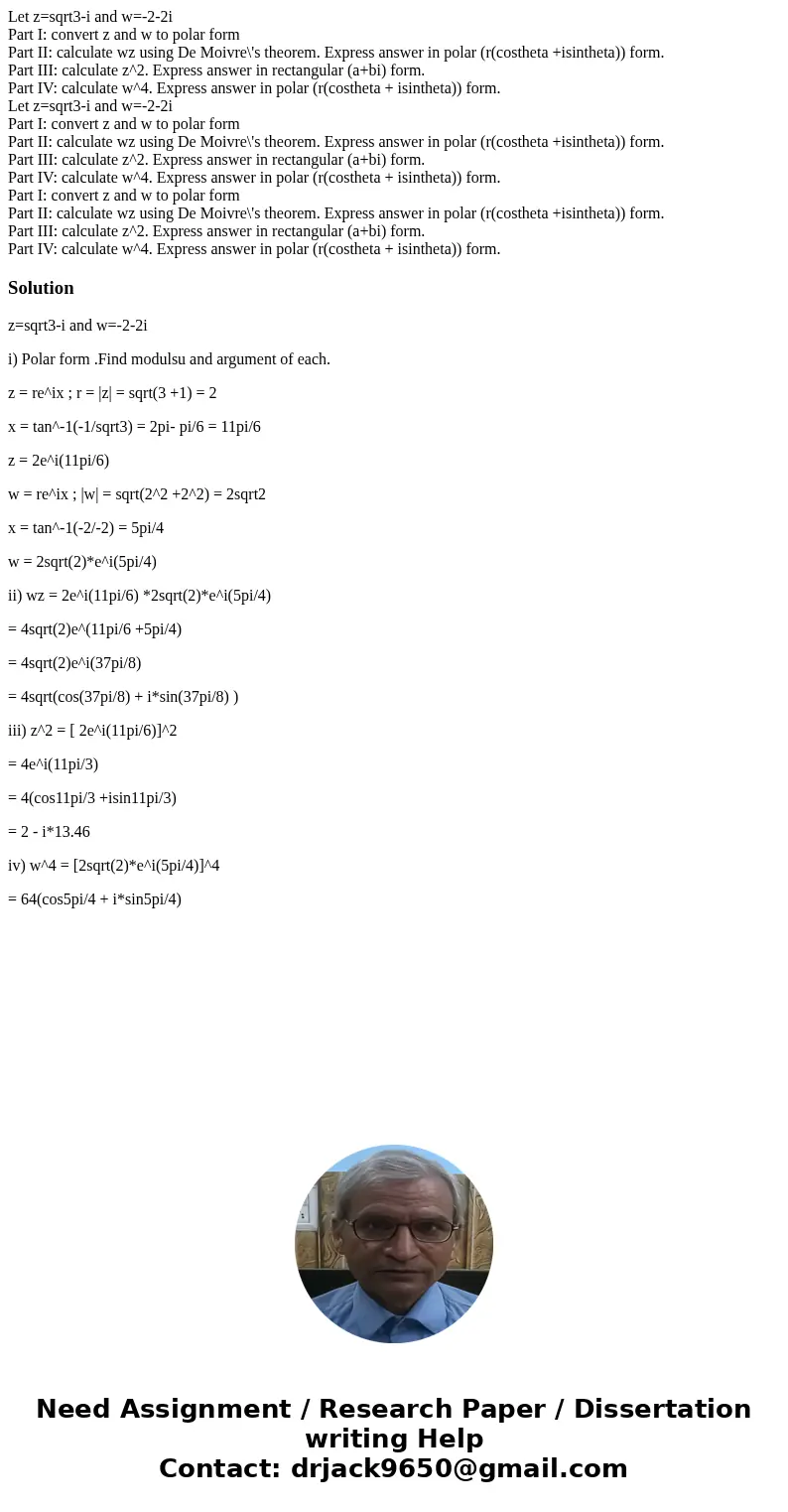Let zsqrt3i and w22i Part I convert z and w to polar form Pa
Let z=sqrt3-i and w=-2-2i
Part I: convert z and w to polar form
Part II: calculate wz using De Moivre\'s theorem. Express answer in polar (r(costheta +isintheta)) form.
Part III: calculate z^2. Express answer in rectangular (a+bi) form.
Part IV: calculate w^4. Express answer in polar (r(costheta + isintheta)) form.
Let z=sqrt3-i and w=-2-2i
Part I: convert z and w to polar form
Part II: calculate wz using De Moivre\'s theorem. Express answer in polar (r(costheta +isintheta)) form.
Part III: calculate z^2. Express answer in rectangular (a+bi) form.
Part IV: calculate w^4. Express answer in polar (r(costheta + isintheta)) form.
Part I: convert z and w to polar form
Part II: calculate wz using De Moivre\'s theorem. Express answer in polar (r(costheta +isintheta)) form.
Part III: calculate z^2. Express answer in rectangular (a+bi) form.
Part IV: calculate w^4. Express answer in polar (r(costheta + isintheta)) form.
Solution
z=sqrt3-i and w=-2-2i
i) Polar form .Find modulsu and argument of each.
z = re^ix ; r = |z| = sqrt(3 +1) = 2
x = tan^-1(-1/sqrt3) = 2pi- pi/6 = 11pi/6
z = 2e^i(11pi/6)
w = re^ix ; |w| = sqrt(2^2 +2^2) = 2sqrt2
x = tan^-1(-2/-2) = 5pi/4
w = 2sqrt(2)*e^i(5pi/4)
ii) wz = 2e^i(11pi/6) *2sqrt(2)*e^i(5pi/4)
= 4sqrt(2)e^(11pi/6 +5pi/4)
= 4sqrt(2)e^i(37pi/8)
= 4sqrt(cos(37pi/8) + i*sin(37pi/8) )
iii) z^2 = [ 2e^i(11pi/6)]^2
= 4e^i(11pi/3)
= 4(cos11pi/3 +isin11pi/3)
= 2 - i*13.46
iv) w^4 = [2sqrt(2)*e^i(5pi/4)]^4
= 64(cos5pi/4 + i*sin5pi/4)

 Homework Sourse
Homework Sourse